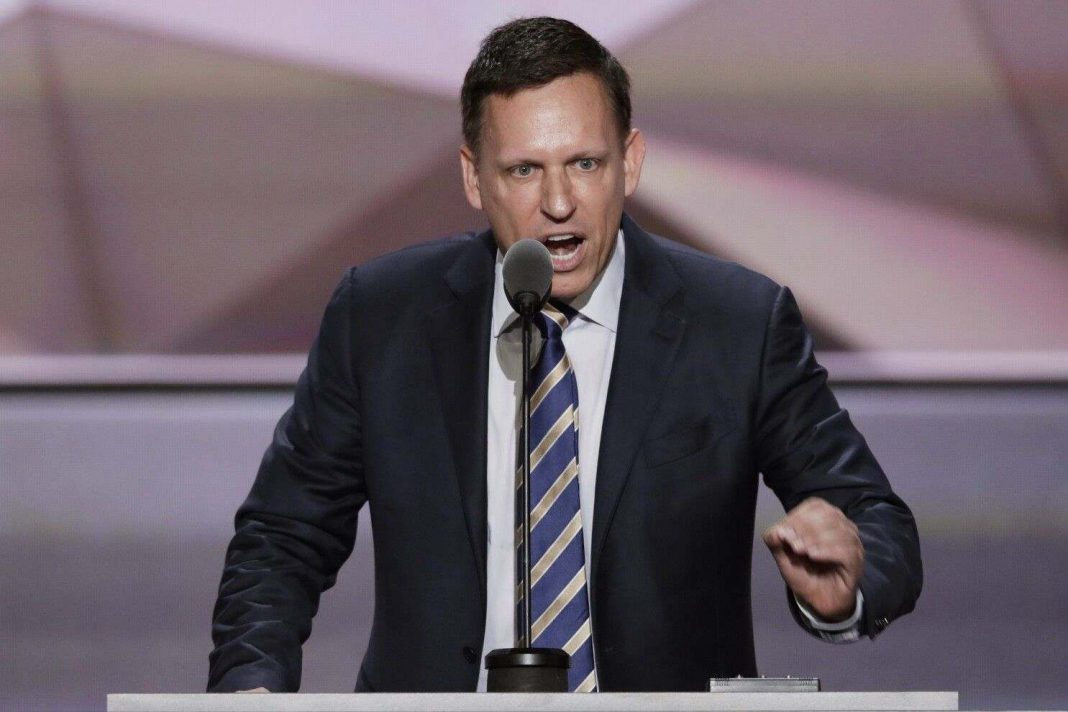Meta, the parent company of Facebook, said on Monday that Peter Thiel, one of the firm’s longest-serving board members, intends to stand down from his position.
Mr. Thiel, 54, wants to concentrate his efforts on influencing the midterm elections in November, according to a source with knowledge of Mr. Thiel’s thinking who asked not to be named. According to this source, Mr. Thiel believes that the midterm elections are critical in altering the course of the nation, and he is supporting candidates who embrace the agenda of former President Donald J. Trump.
Over the course of the past year, Mr. Thiel, whose net worth is estimated by Forbes to be $2.6 billion, has risen to become one of the Republican Party’s most generous contributors. Blake Masters, who is running for a Senate seat in Arizona, and J.D. Vance, who is vying for a Senate seat in Ohio, each received $10 million in donations from him in the previous year.
Mr. Thiel has been on the Meta board of directors since 2005, when Facebook was a fledgling start-up and he was one of the company’s first institutional investors, according to the company. However, as the firm has grown entangled in political conflicts, including the exclusion of former President Donald Trump from the platform, and as the venture capitalist has become more politically active, the criticism of Mr. Thiel’s position on the board has progressively intensified.
As a result of the resignation, Meta will be without its most prominent conservative voice on its board of directors. A considerable number of board members have departed and been replaced, frequently by successful Silicon Valley entrepreneurs, during the last several years, resulting in major changes to the 10-member board. Drew Houston, the CEO of Dropbox, was appointed to Facebook’s board of directors in 2020, and Tony Xu, the creator of DoorDash, was appointed to the board last month. Whether or not Meta plans to replace Mr. Thiel was not stated by the company.
Following its 18th anniversary, the firm is making a move toward the so-called metaverse, which its chief executive, Mark Zuckerberg thinks will usher in the next generation of Internet technology. According to a study released last week, Meta expects to spend more than $10 billion on the initiative in 2021, with uncertain financial consequences. The stock market value of the corporation plummeted by more than $230 billion as a result of this.
Founder and CEO Mark Zuckerberg and Mr. Thiel first met 18 years ago when Mr. Thiel invested $500,000 in Facebook at a time when the firm was worth $4.9 million, establishing the first meeting between the two. Mr. Thiel, whose venture capital company Founders Fund had a 10 percent investment in the social networking site, was therefore appointed to the social network’s board of directors.
Since then, Mr. Thiel has established himself as a trusted advisor to Mr. Zuckerberg. The firm sought him advice throughout its early years of fast user growth, and during the company’s problems in transitioning its operations to mobile phones around the time of its first public offering in 2012.
Additionally, he has been characterised as the “contrarian” who had Mr. Zuckerberg’s ear, promoting unrestricted speech across digital platforms when it was in his best interests. His conservative views also contributed to the ideological variety that Mr. Zuckerberg desired on Facebook’s board of directors.
Mr. Thiel’s political power and connections to important Republicans and conservatives have also provided Mr. Zuckerberg with a vital conduit into Washington, particularly during the Trump administration. Mr. Zuckerberg and Mr. Thiel were invited to a private dinner with President Trump in October of this year.
Mr. Thiel’s membership on the board of directors has long been a source of controversy for Facebook and Mr. Zuckerberg. On the campaign trail for President Donald Trump in 2016, Mr. Thiel stood out as one of the few billionaires in the mostly liberal Silicon Valley to overtly endorse Mr. Trump.
When Mr. Trump’s controversial Facebook postings were scrutinised in 2020, opponents pointed to Mr. Thiel’s position on the company’s board as a reason for Mr. Zuckerberg’s ongoing demand that Mr. Trump’s remarks be kept up.
Facebook deleted Mr. Trump’s account last year after the storming of the United States Capitol on January 6, claiming that his posts incited violence. Conservatives have used the incident as a rallying point, claiming that mainstream social media companies have restricted their views.
Mr. Vance, a former employee of one of Mr. Thiel’s venture capital firms, and Mr. Masters, the chief operational officer of Mr. Thiel’s family office, have both expressed their displeasure with Facebook. In an editorial article published in The New York Post in October, the two Senate hopefuls said that Mr. Zuckerberg’s $400 million in contributions to local election offices in 2020 amounted to “election tampering” that should be probed.
Mr. Thiel’s investment activities have also conflicted with his position on the Meta board of directors. Clarview AI, a face recognition start-up that scraped billions of photographs from Facebook, Instagram, and other social media platforms in violation of their terms of service, was founded by an investor who went on to become CEO of Clearview AI. Founders Fund also made an investment in Boldend, a cyberweapons business that claimed to have discovered a means to attack WhatsApp, the Meta-owned messaging app, in addition to other investments.

